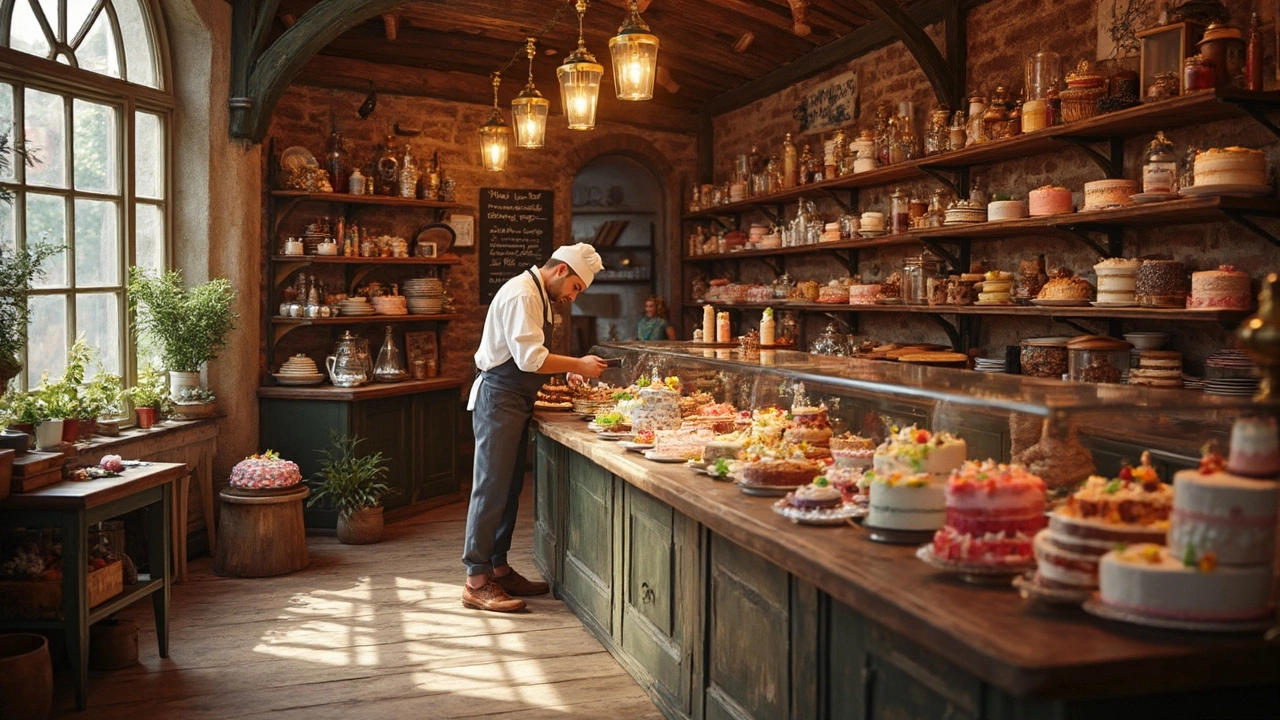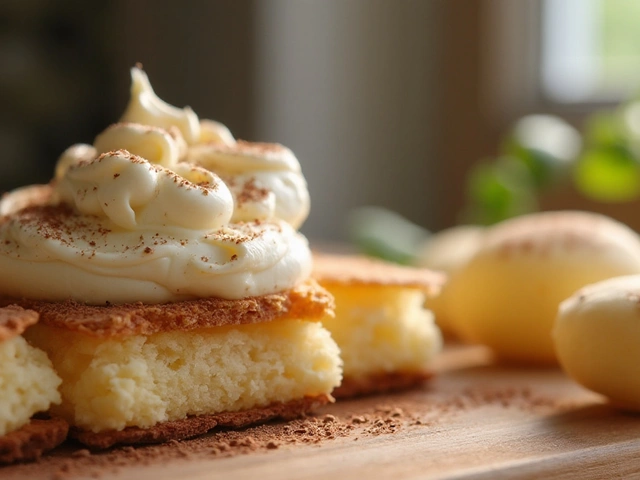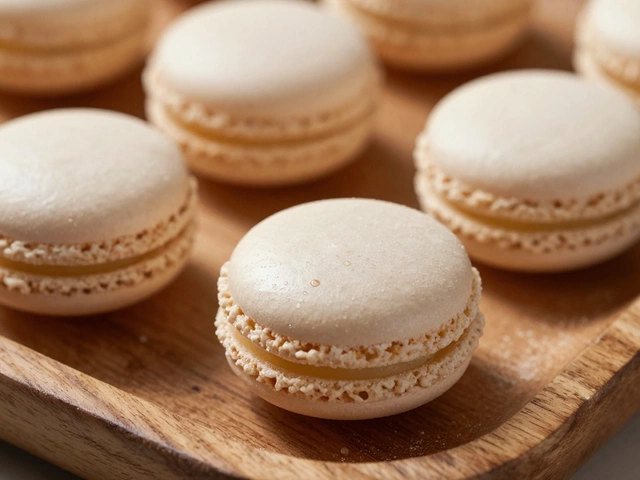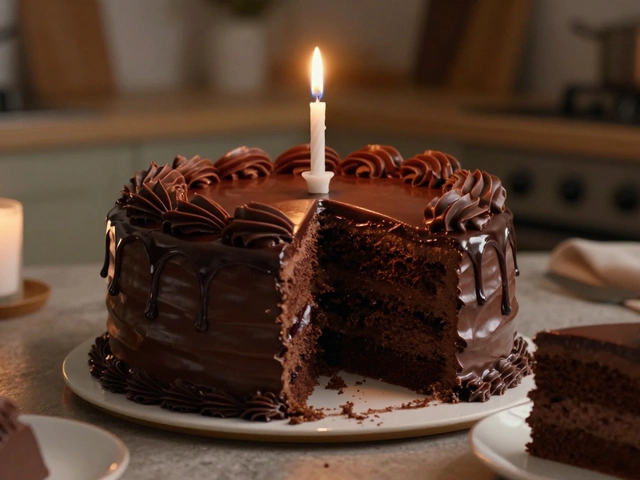So, you're rolling up to another year, or perhaps planning a bash for someone special, and you're wondering just how much a cake sets you back these days. Well, you're not alone. The price tag on a birthday cake can really vary.
First off, let's break down what 'normal' might mean. For most folks, it's the classics we're looking at—simple vanilla or chocolate, maybe with a few festive decorations on top. The cost for a basic cake like this can start around $20 to $30 if you're hitting up your local grocery store.
Now, if you decide to bake at home, you're looking at a whole different ballpark. Costs are generally lower since you're ditching labor fees, but it also depends on what you've got in the pantry. If you're aiming for something a little fancier, say gluten-free or vegan, those special ingredients might up your spend a bit.
- Understanding Cake Pricing
- Homemade vs. Store-Bought
- Size and Serving Considerations
- The Impact of Ingredients
- Custom Designs and Decorations
- Finding the Right Balance
Understanding Cake Pricing
When it comes to figuring out how much you'll shell out for a cake, there are several things in the mix. Let's talk about some of these factors that can make a birthday cake either a bargain or a bit of a splurge.
Where You Buy Matters
One of the biggest determinants of price is the place you choose to grab your cake from. Supermarkets typically offer the most budget-friendly options. A standard cake like a vanilla or chocolate layer might cost $20 to $30. Meanwhile, if you're eyeing a specialty bakery, expect to drop anywhere from $50 to $100 or more. They often use higher-quality ingredients and offer fancy designs that rack up the prices.
The Size Factor
Size also plays a huge role in cake pricing. Sure, a small, single-layer cake won't set you back much, but a multi-tiered masterpiece will hit your wallet harder. Consider how many guests you plan to serve. A 10-inch round cake can typically serve about 20 to 25 people, while bigger parties might call for larger cakes or multiple tiers, raising the cost.
Ingredient Quality
Another big player is ingredient quality. Cakes made with organic or specialty items—think vegan or gluten-free alternatives—tend to cost more than your run-of-the-mill chocolate or vanilla. Locally sourced or organic ingredients amp up the goodness but also the price tag.
Customization Costs
Personal touches and intricate decorations can make your cake look amazing, but those extra frills add up. Whether it's a custom color scheme, themed decorations, or even names and messages, customization is where things start getting pricey.
| Element | Impact on Price |
|---|---|
| Basic Ingredients | Lowest cost |
| Specialty Ingredients | Moderate to High |
| Custom Design | Moderate to High |
| Store Type | Variable |
All these elements can make cake shopping feel like a small adventure. Whether you're going all out or keeping it simple, knowing about these factors helps you plan better and maybe even save a few bucks. So, the next time you're ordering a cake, you'll have a good sense of what to expect.
Homemade vs. Store-Bought
You've got a choice to make: whip up a cake in your kitchen or snag one from the store. Each option has its perks and drawbacks, and the decision might boil down to your budget, time, and skill level.
Homemade Cakes
Going the homemade route can definitely save you a few bucks, especially if you've already got basic ingredients chilling in the pantry. Plus, you've got full control over the taste and look, which is a win if you've got specific flavor cravings or dietary needs.
Homemade cakes tend to be cheaper because you’re only paying for ingredients, not the labor. However, there's also the time and effort you spend in the kitchen—something to consider if you're short on both. The average cost of making a cake at home is roughly $10 to $15, based on ingredients like flour, sugar, and eggs.
Store-Bought Cakes
If you're eyeing convenience, a store-bought cake is your buddy. No mixing, no baking, no cleaning. Just pick up and go. But did you know there’s more to it than just convenience?
Store-bought cakes can offer fancy designs and themes that are tough to achieve at home unless you’ve got some solid piping skills. Depending on where you shop, prices can start at $20 for a basic design and go upwards to $100 or more for something elaborate! Some bakeries even let you customize cakes by choosing specific themes, which is great if you’re willing to splurge a bit.
It’s worth noting that the price often reflects the quality too. A bakery-fresh cake might taste better than one from the supermarket. So, if taste is your main gig, consider where the cake’s coming from.
Crazy stat time? About 65% of folks go for store-bought when celebrating special occasions, according to some bakery sales records from recent years.
So, whether it's letting your creative juices flow or leaning into convenience, the choice between homemade and store-bought cakes hinges on what you value most for your celebration.
Size and Serving Considerations
When it comes to birthday cakes, size matters. It’s all about knowing how many people you need to feed and what kind of impression you want to make. Sometimes small can be just as impressive as a huge tiered masterpiece, especially if you nail the flavors.
The standard for most cakes is measured in inches. A 6-inch cake typically serves 6 to 8 people, while an 8-inch cake handles around 12 to 16 mouths. If you've got a big crowd, a 10-inch cake can cater to roughly 24 folks. Always better to err on the side of a bit more—because who doesn’t love leftover cake?
Portion Planning
Cake servings aren’t one-size-fits-all. Think about your audience. For kids, smaller slices work great. Adults might appreciate something more robust. Remember to check how thick your layers are too. A cake that’s loaded with filling might leave everyone fuller faster.
If you’re the one baking, those basic round cake pans are your go-to. But what about if you want to think outside the box—or rather, the circle? Sheet cakes offer rectangular vibes and can stretch those servings even further without shifting the taste or quality.
The Cost Factor
The ultimate price of a cake tends to rise with its size. It's the cake cost equation: more guests equals more cake, which of course leads to more dollars spent. For example, a simple, larger sheet cake for a sizable gathering might strangely cost less than a smaller, elaborate custom design due to the intricacies involved with decoration.
Pro tip: Always double-check with your baker about size-to-cost ratios and plan out your servings. That way, you can avoid breaking the bank while still ensuring the cake is the party's sweet highlight.
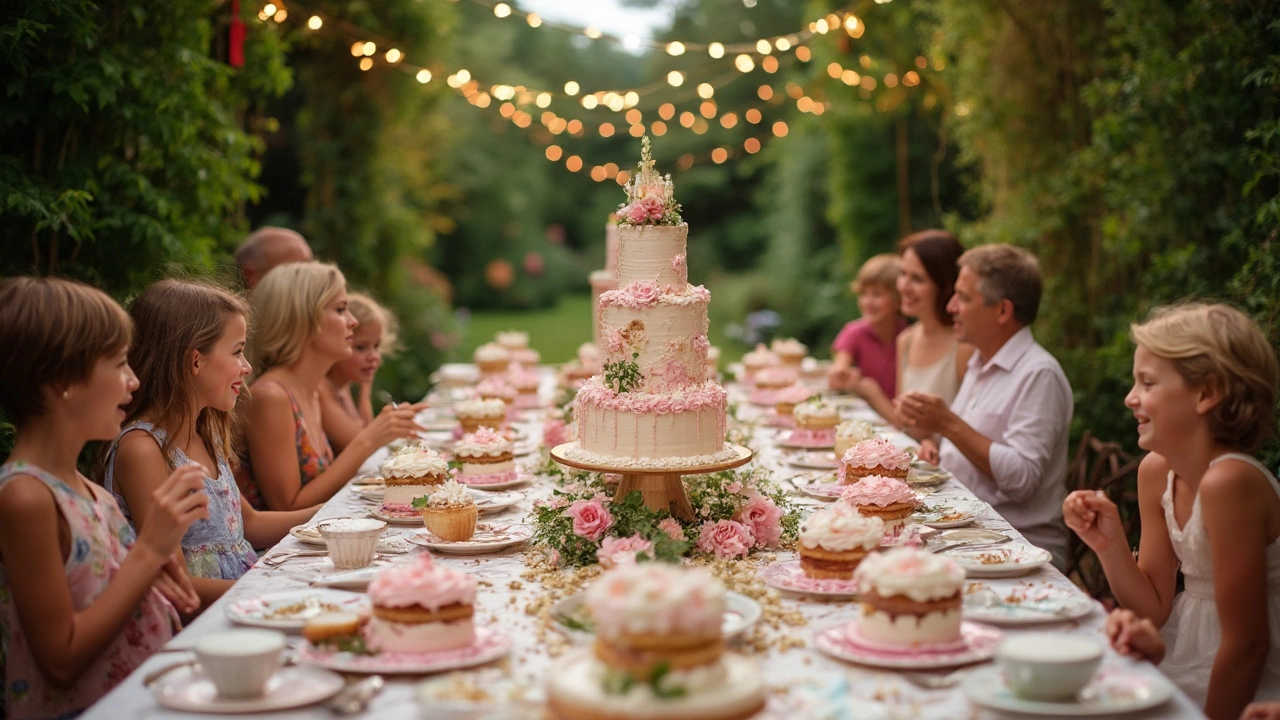
The Impact of Ingredients
You might not realize it, but the ingredients used in a cake play a huge role in its cost. When you're eyeing that cake cost, remember that some ingredients are pricier than others.
Basic Ingredients vs. Specialty Items
At its core, a cake typically needs flour, sugar, eggs, butter, and some flavoring such as vanilla. These basic ingredients are pretty affordable and can easily fit into a tight budget. But once you start reaching for organic, gluten-free, or gourmet options, prices go up. For instance, swapping regular flour for almond flour can triple the cost per pound.
Chocolate, Fruits, and More
If you're dreaming of a chocolate cake, the type of chocolate you use matters. A cake made with premium dark chocolate is going to cost more than one made with basic cocoa powder. And let's not forget fresh fruits. Fresh, seasonal fruits can add freshness, but out-of-season ones? Oof, they can skyrocket your expenses.
Custom and Premium Additions
Want something vegan or dairy-free? Expect to pay a premium. Specialty milk alternatives and egg replacements can cost quite a bit, especially if you don't typically buy them.
Bringing It All Together
To put this into perspective, here's a quick breakdown of how these items might influence the overall price of a cake:
| Ingredient Type | Estimated Price Increase |
|---|---|
| Organic/Free-range Eggs | 20% - 30% |
| Almond Flour vs. All-purpose Flour | Up to 300% increase |
| Premium Chocolate | 50% - 100% |
| Fresh, Exotic Fruits | Varies significantly |
Bottom line? If you’re mindful of these ingredient choices, you can better predict your cake pricing. Balancing these luxuries with basics can help you avoid a shocking checkout total!
Custom Designs and Decorations
So, you want something that's not just a normal cake? Maybe you're thinking of a themed cake, like a superhero masterpiece or something with intricate sugar flowers. Custom designs can really make a birthday cake go from basic to WOW, but they can also make the price climb.
First, let's consider the artistry involved. Skilled bakers who specialize in custom designs put in hours of work, and that time costs. You might pay anywhere from $50 to over $100 for a decent-sized custom cake, depending on what's needed.
Consider the Materials
From fondant to edible glitter, the materials for these cakes aren't your everyday groceries. Fondant alone can cost a pretty penny, and edible gold leaf or silver dragees? Yup, they add to the bill, too. Investing in these details can hike up the price but also boost the cake's wow factor.
Labor of Love
A custom design means lots of labor. Think about it: bakers are not just slathering on frosting; they're crafting art. When someone spends hours molding sugar into tiny figures or piping exquisite details, that effort is worth every cent.
Party Size and Logistics
The bigger the bash, the more servings you need. When you're shooting for a large gathering, expect to pay more. Sometimes, bakers need to build layered structures or use supports—almost like cake construction, which might add to the price!
Is It Worth It?
Here's the thing: a custom cake is not just about eating. It's about making memories. Yes, it's pricier, but if it's within your budget, the smiles and Instagram-worthy snaps might just be priceless.
| Design Element | Estimated Cost |
|---|---|
| Basic Custom Cake | $50-$100 |
| Fondant Additions | $15-$30 |
| Handcrafted Figures | $20-$50 |
| Intricate Piping | $10-$40 |
Thinking of going the fancy route with your next birthday cake? Weigh the factors. And if budget is tight, maybe a mix of store-bought with a few DIY touches can offer the sweet spot.
Finding the Right Balance
Trying to get that perfect cake cost while still making your birthday bash memorable? It's all about finding that sweet spot between what you want and what you can afford. Let's break it down.
Determine Your Priorities
Do you want a cake that looks like a masterpiece or one that's just tasty and gets the job done? If the looks are not so important to you, you might save some bucks by opting for a simpler decoration or by scaling back on custom designs. Fancy fondant and intricate details do add up.
Consider Cake Size and Serving Needs
The size of the cake is another biggie. How many people are you feeding? If it's a smaller group, go with a smaller cake. A typical round cake might serve anywhere from 10 to 20 people, which is perfect for a small gathering. But if you're inviting the whole neighborhood, those costs will inch up with cake size.
Balancing Homemade vs. Store-Bought
Baking at home can often shave off costs, especially if you're equipped with basic baking ingredients and a bit of know-how. The trade-off here is time and effort, but those can be well worth it for a cake that's just the way you like it.
Budget-Conscious Ingredient Choices
Ingredients greatly impact your budget too. Basics like vanilla or chocolate are kinder to your wallet compared to exotic flavors or dietary-specific options like gluten-free. Still, you might want to factor in dietary needs if they apply.
Quick Tips to Stay on Budget
- Shop around – Prices vary from bakery to bakery, so getting a few quotes could save you money.
- Think seasonally – Using in-season fruits could lower cost and up the flavor.
- Compromise – Maybe a homemade cake can be paired with store-bought cupcakes to hit a nice middle ground.
Finding the right balance for cake pricing often means mixing and matching these elements based on what's most important to you for that special day. A little planning can go a long way in getting the best value for your birthday cake budget.

